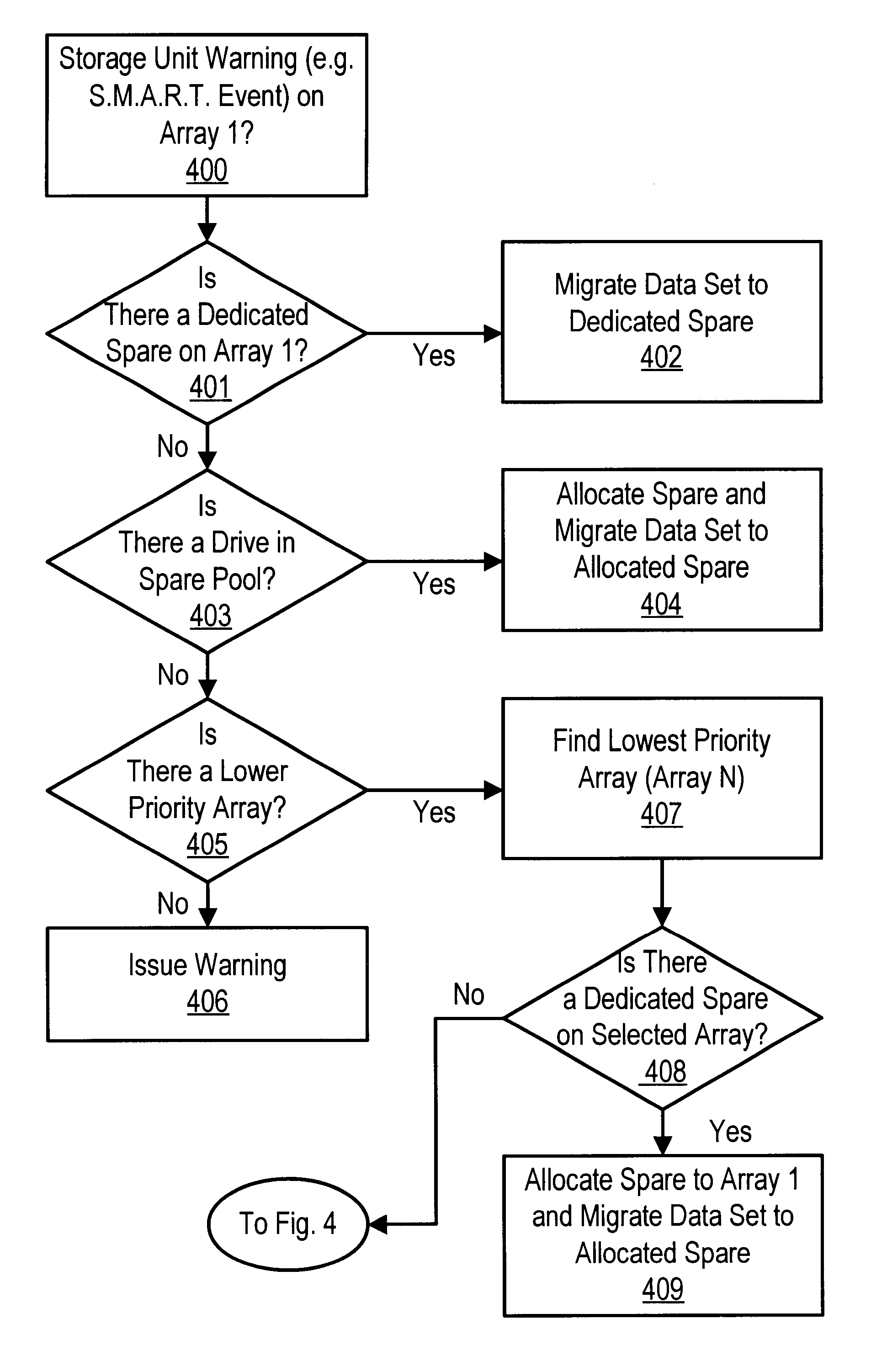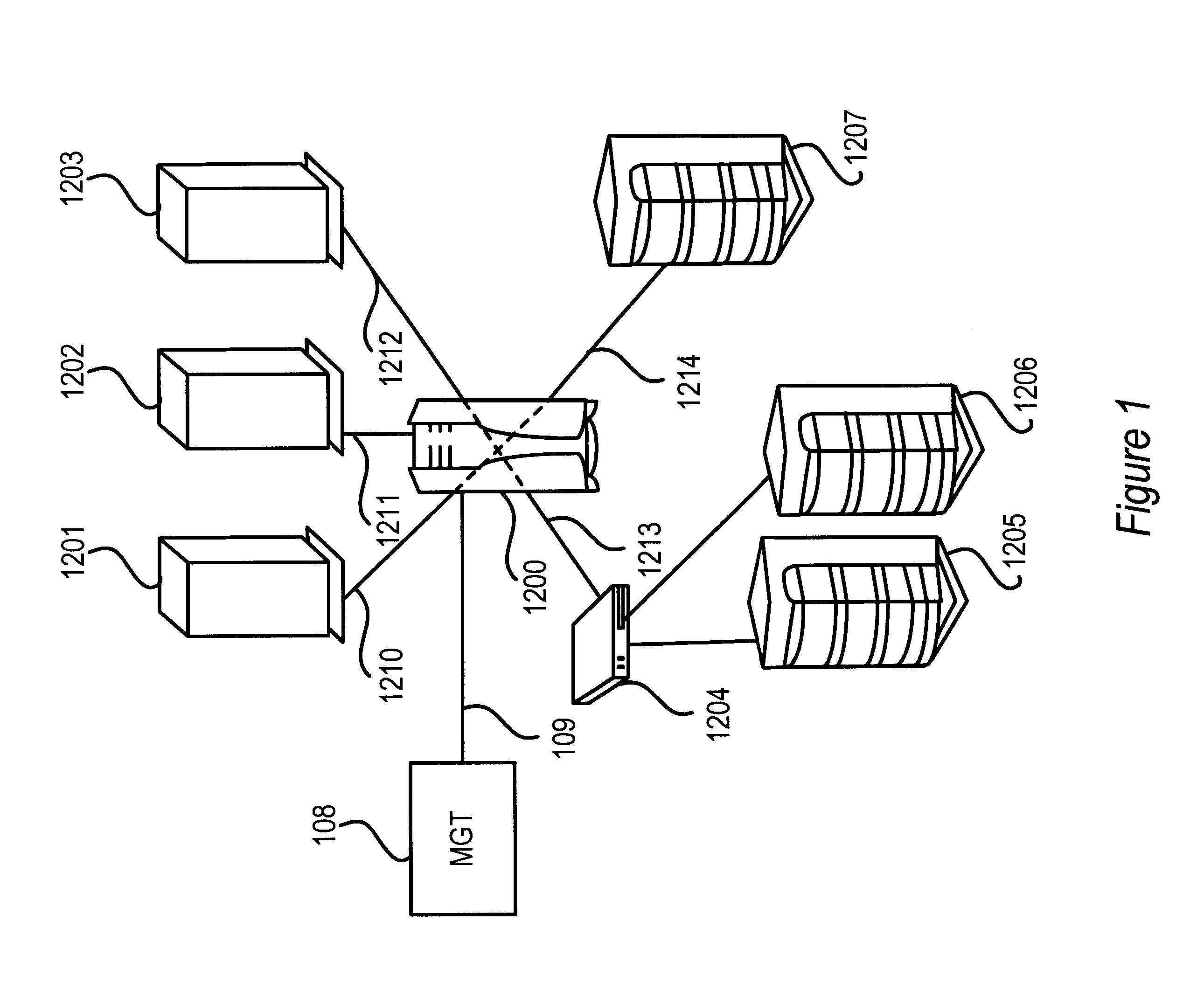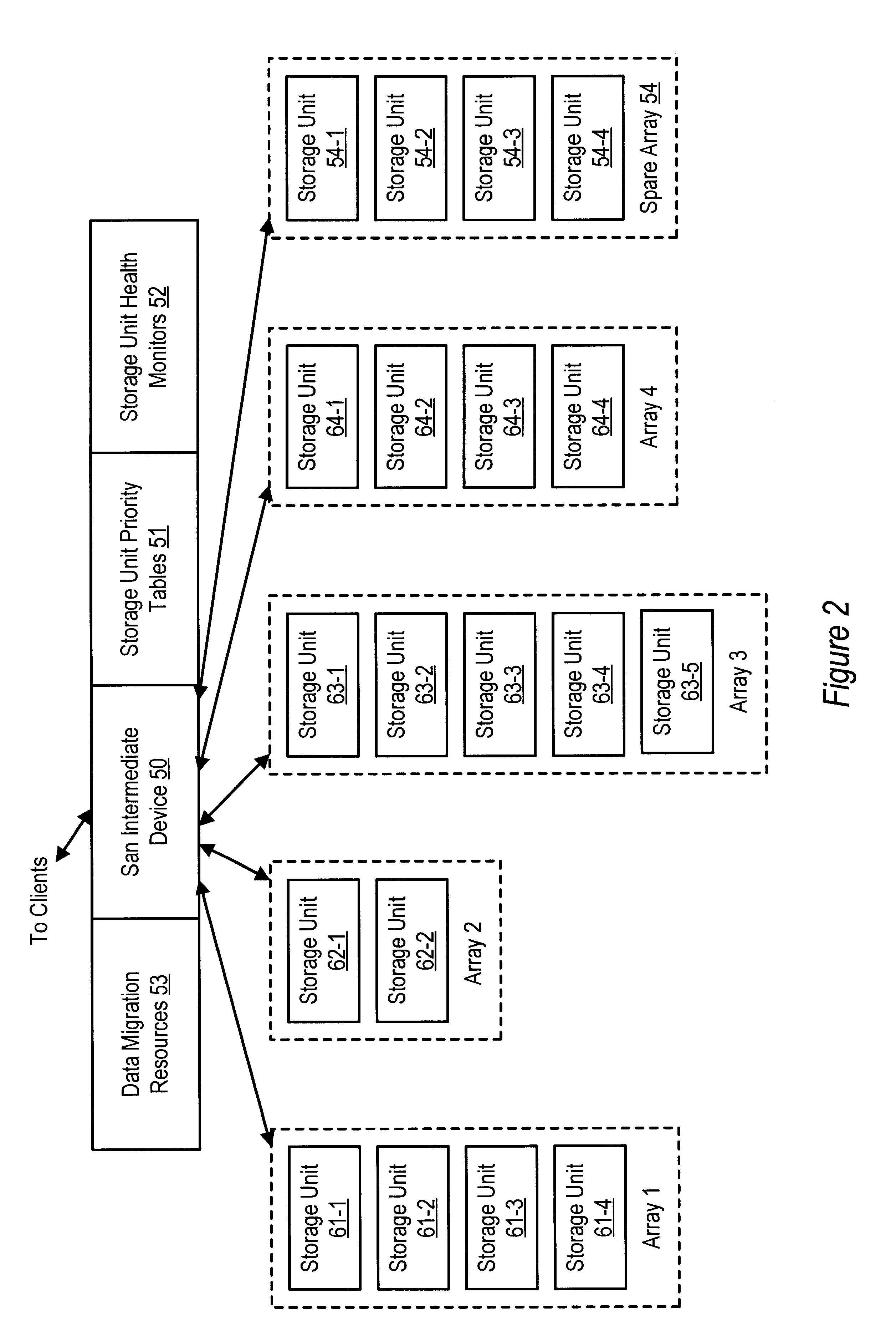Method and apparatus for storage unit replacement according to array priority
a technology of array priority and storage unit, applied in the field of mass storage systems, can solve the problems of affecting the use of storage units, etc., and achieve the effect of reducing the number of people inconvenienced, and preventing the blockage of data sets
- Summary
- Abstract
- Description
- Claims
- Application Information
AI Technical Summary
Benefits of technology
Problems solved by technology
Method used
Image
Examples
Embodiment Construction
For example, consider a storage transaction that comes over one of the connection options 130 to the ISAN server 102 using the SCSI protocol and designating LUN 2 in the addressing information. Assume that the ISAN server 102 is configured as shown in Tables 1 and 2 for this example.
The connection option such as the network interface 146 over which the storage transaction is received is coupled to a hardware device driver. The hardware device driver receives the storage transaction and depending on the protocol, dispatches it to an appropriate virtual device for handling that protocol.
For example, SCSI storage transactions are sent to a device driver in the SCSI target class. Similarly, IP storage transactions are sent to a device driver in the IP target class. Here, the storage transaction was made using the SCSI communication protocol so it is routed to a SCSI target device driver (DID 500).
The SCSI target device driver further analyzes the request. The first part of the analysis ...
PUM
 Login to View More
Login to View More Abstract
Description
Claims
Application Information
 Login to View More
Login to View More - R&D
- Intellectual Property
- Life Sciences
- Materials
- Tech Scout
- Unparalleled Data Quality
- Higher Quality Content
- 60% Fewer Hallucinations
Browse by: Latest US Patents, China's latest patents, Technical Efficacy Thesaurus, Application Domain, Technology Topic, Popular Technical Reports.
© 2025 PatSnap. All rights reserved.Legal|Privacy policy|Modern Slavery Act Transparency Statement|Sitemap|About US| Contact US: help@patsnap.com



